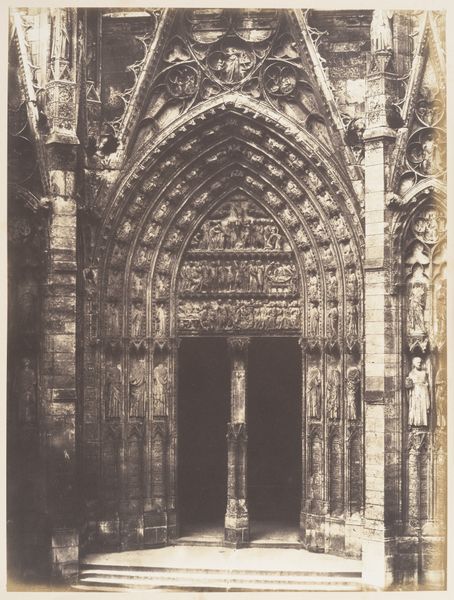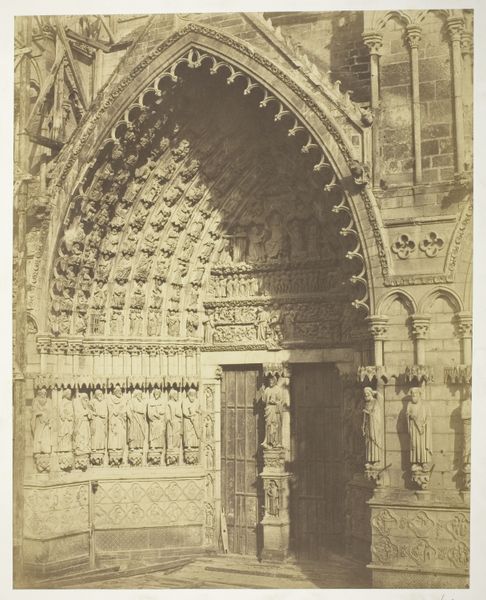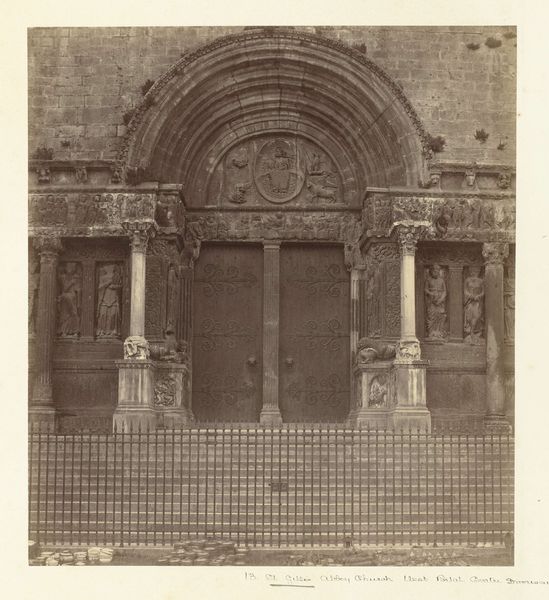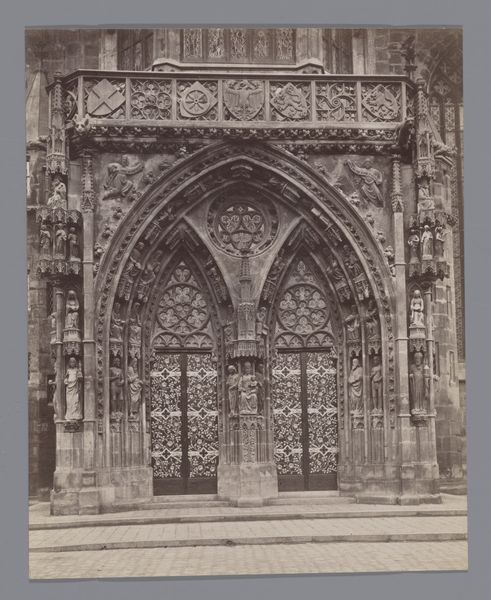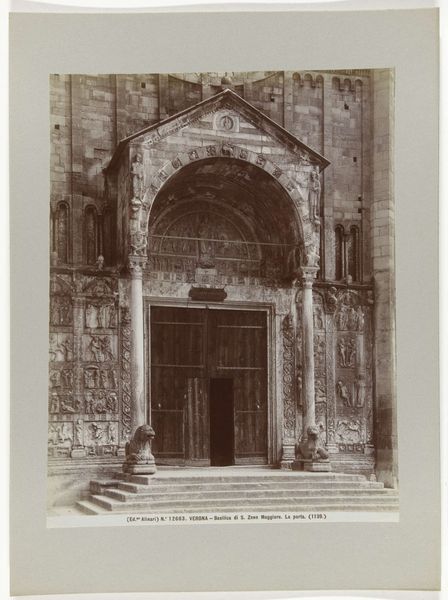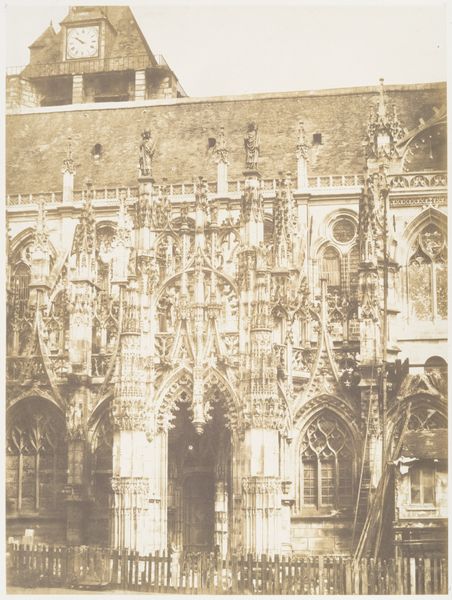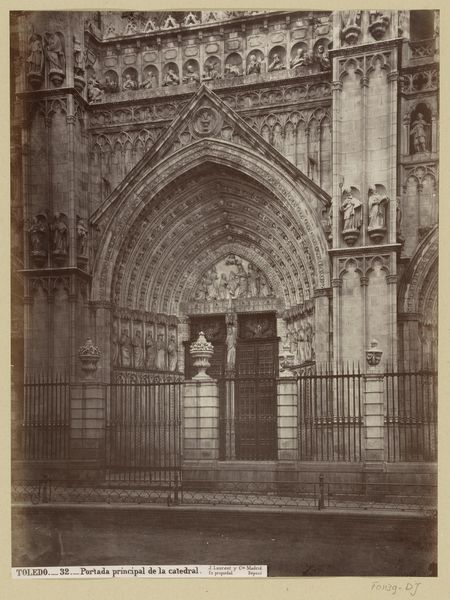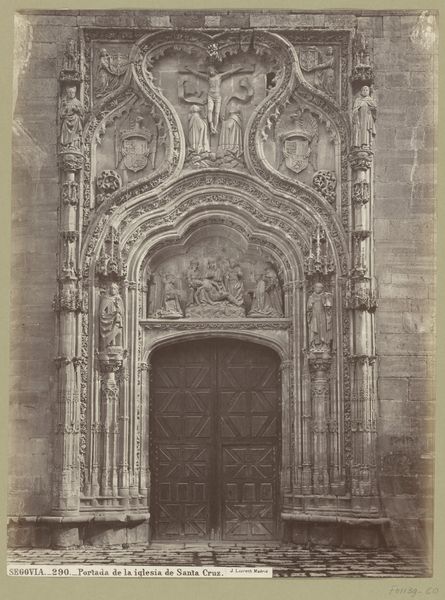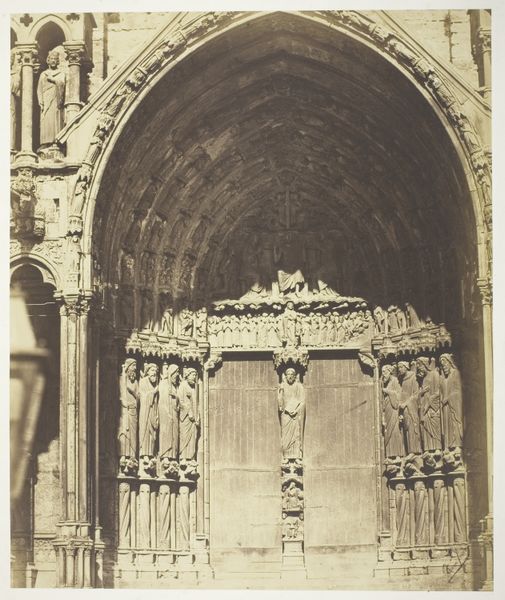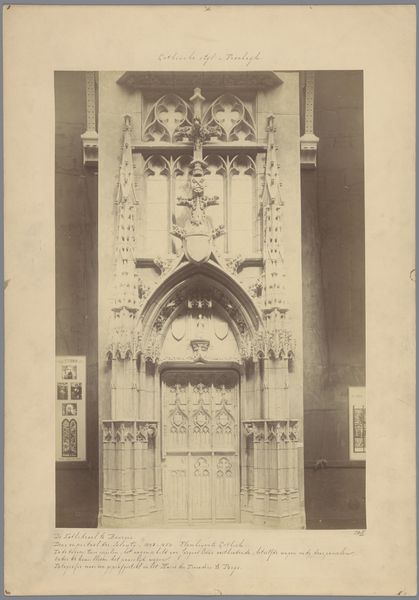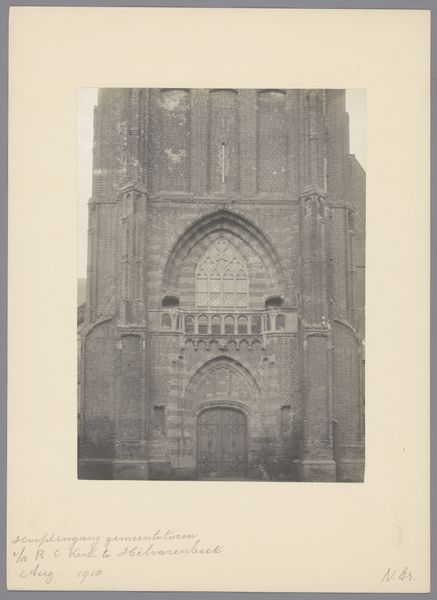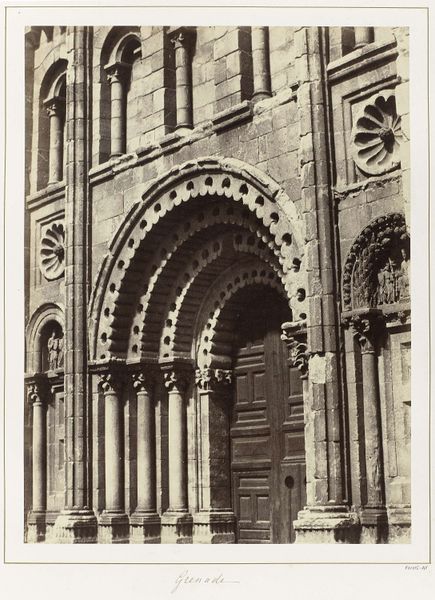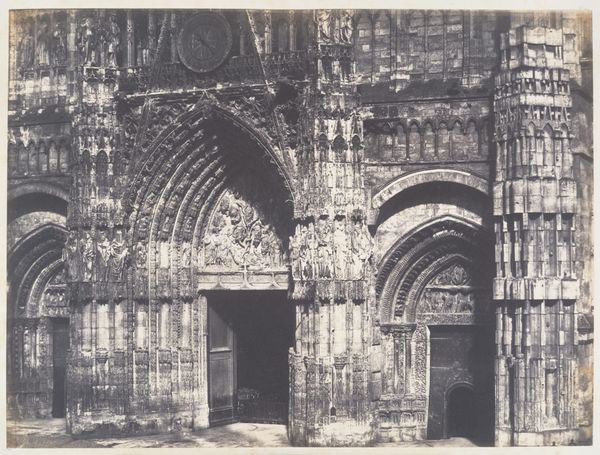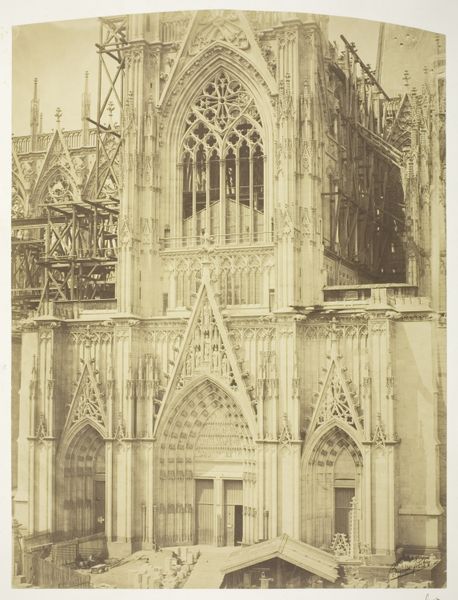
Portail des Marmousets, Saint-Ouen de Rouen 1852 - 1854
0:00
0:00
Dimensions: 34 x 26.1 cm (13 3/8 x 10 1/4 in. )
Copyright: Public Domain
Edmond Bacot made this photograph of the Portail des Marmousets at Saint-Ouen de Rouen using a paper negative, a process known as calotype. The calotype, patented in 1841, allowed for multiple prints to be made from a single negative, offering new possibilities for image production and distribution, compared to the daguerreotype which produced one-off images on a silvered copper plate. This process democratized photography and enabled the proliferation of images in ways never before possible. Bacot’s choice of subject matter is interesting. By documenting the architecture of Saint-Ouen, with its intricate stonework, he turns the camera lens on the labor-intensive craft of the past. This photograph becomes a record and perhaps even a celebration of the human skill required to produce such a building. By using the calotype process, Bacot democratized the image of Saint-Ouen, making it accessible to a wider audience. This invites us to think about the relationship between labor, craft, and the means of production in both architecture and photography.
Comments
No comments
Be the first to comment and join the conversation on the ultimate creative platform.
